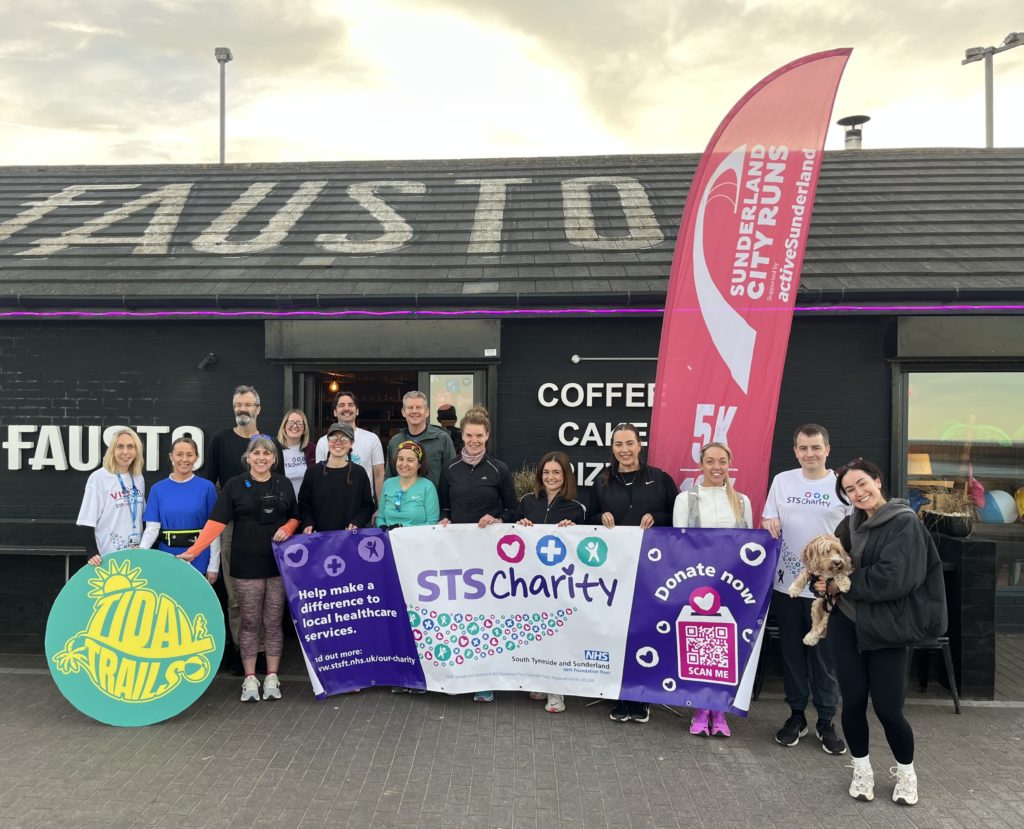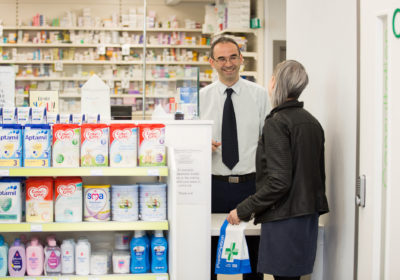The Government has launched a call for evidence to inform the development of a Men’s Health Strategy for England. It seeks the views of the public, health and social care professionals, academics, employers, and stakeholder organisations.
Men face unique challenges throughout their lives:
- Men are disproportionately affected by a number of health conditions, including cancer, cardiovascular disease and type 2 diabetes.
- Life expectancy data also shows that men live on average four years fewer than women (79.1 versus 83.0 years in England, respectively).
The Government will use your ideas and evidence to help inform the strategy.
Healthwatch England chief executive Louise Ansari said: “We welcome the government’s call for evidence and would strongly urge men from all walks of life and backgrounds to have their say.
“Men experience vastly different life expectancies, based on whether they live in deprived or well-off areas. They are often diagnosed with cancer in later stages of life, and experience disparities based on ethnicity, such as the disproportionate detention of Black men in mental health wards.
“It’s important that these men – and their partners, family members and other important people in their lives – help shape the solutions to tackle these inequalities, in the same way that 100,000 people shaped the Women’s Health Strategy.”
Today, Royal Mail, NHS England, NHS Providers, Healthwatch England, National Voices and the Patients Association have written an open letter to Ofcom highlighting the introduction of new protections to ensure reliable and efficient postal service for NHS patients.
The postal regulator has today closed its public consultation to reform the universal postal delivery service, with changes to be announced this summer.
Since the beginning of the consultation, they have worked with Royal Mail and NHS and patient organisations to ensure that proposed changes improve timely delivery of NHS letters.
The improvements include:
- A new Royal Mail NHS-specific barcode to support mail delivery teams ensure that NHS letters are delivered on time, including at times of service disruptions. Once implemented, the barcode will replace manual extraction of NHS letters and be used to locate NHS letters where Royal Mail is not meeting expected delivery standards.
- A new briefing for NHS organisations to increase awareness and uptake of the variety of Royal Mail services for the timely delivery of NHS letters.
Last year, NHS and patient groups raised their concerns with Royal Mail and Ofcom following plans to delay bulk mail of NHS appointment letters last year.
In the open letter, the health leaders, joined by Royal Mail, have shared how they have worked together to meet the needs of the public and the NHS, as well as pledging to ensure that any future reform reflects the needs of the NHS and patients.
Emma Gilthorpe, Chief Executive, Royal Mail, said: “We understand the vital importance of NHS letters to all our customers. We have put the needs of the NHS at the heart of our Universal Service reform proposals, ensuring we can deliver a range of service options for appointments and results sent by GPs surgeries, NHS bodies and hospitals across the country. We have also been working with NHS providers and patient groups to ensure the timely delivery of identifiable medical letters and welcome the truly collaborative approach taken.”
Saffron Cordery, Interim Chief Executive of NHS Providers, said: “NHS trusts know the important role that letters play in patient care. It’s important that letters reach people on time so they aren’t missing appointments or at risk of losing their place in the queue for care, and not everyone can go online or has a smartphone. By working together we can make changes that meet the needs of patients and the NHS, including cutting trusts’ costs at a time when budgets are stretched to the limit.”
Louise Ansari, Chief Executive at Healthwatch England, said: “We have been delighted to work with Royal Mail and other health partners to make sure that people’s experiences of delayed letters have been listened to and addressed. Delayed delivery of letters is a frustrating admin issue people share with us. Recent research shows that 1 in 5 people received an invitation to an appointment by letter or text after the date of their appointment [3].
“Whether missing important appointments or vital test results, letters arriving late can be a patient safety risk, and often puts the burden on people to chase essential communications themselves. We hope these changes lead to improvements for patients and NHS teams.”
Rachel Power, Chief Executive of the Patients Association, said: “For some patients, receiving timely written correspondence is extremely important to their care experience. When information flows as it should between patients and healthcare providers, it creates the foundation for genuine shared decision-making and more effective, safer care that works for all patients. We’re committed to ensuring patients receive important health information in the way that works for them without delay. When patients and providers can communicate effectively and reliably, everyone benefits from safer, more personalised care.”
Jacob Lant, Chief Executive, National Voices, said: “It’s vital that patients can chose how best to communicate with the NHS and for many postal letters are essential to how they do that, especially for those that may struggle to understand or access online alternatives such as the NHS app.
“We know this Government is committed to reducing elective waiting times equitably and yet basic admin errors like delayed post can have a huge impact on whether this can be achieved. People with caring responsibilities, facing transport difficulties or with inflexible work roles need time to plan how to attend an appointment, so we hope this change in how Royal Mail manages NHS post will reduce the number of times patients hear about appointments or treatment when it is too late to attend.”
Open letter to Dame Melanie Dawes, Chief Executive, Ofcom
April 10 2025
Dear Ms Dawes,
As Ofcom consults on proposals to reform the universal postal service, Royal Mail, NHS England, NHS Providers, Healthwatch England, National Voices and the Patients Association are writing to set out how we have been working together to ensure that any changes do not lead to worse outcomes or experiences for patients, and that the needs of the public and NHS organisations are met.
Reform of the universal service
Reform of the universal service The Ofcom consultation sets out why change is needed to modernise the postal service whilst protecting the choice of price, speed and reliability for everyone across the country. Alongside reforms to protect the financial sustainability of the universal service, Royal Mail is also working to drive improvements in quality and reliability of services to meet the needs of all postal users.
The importance of NHS letters
There is an increasing move towards digital NHS communications via email, texts, telephone or the NHS App. However letters remain crucial, particularly for those who may be digitally excluded for a variety of reasons.
The late delivery of NHS letters puts people at risk of missing important test results, time-critical appointment information, and any last minute changes to their appointments. Along with patient safety risks, missed appointments are costly to the NHS and disrupt the delivery of care to other patients.
While we recognise that public feedback to Healthwatch England, National Voices and the Patients Association highlights experiences of people in England not being sent important NHS correspondence in a timely fashion, we also want to set out the work being done to deliver for the NHS and patients.
Delivering for the NHS and patients
Since Ofcom published its call for input on the future of the universal postal service in January 2024, we have been working together to understand the impact of the proposed reforms to the postal service and to ensure that these changes deliver for the NHS and patients. NHS organisations use a wide variety of postal services, with no standardised approach. Royal Mail and the NHS have therefore been working together to ensure NHS organisations continue to have a choice of both price and speed when sending letters, and to improve how NHS letters are sent to patients across the UK.
Reliability is of vital importance to NHS providers and patients, and whilst all mail is important, not all is urgent. NHS providers recognise that they must ensure they are sending patients’ post out within the right timeframe and it is up to them to determine what service they use to enable that.
To help with this, NHS England and NHS Providers have produced guidance for NHS organisations, including a case study, to increase awareness and uptake of the variety of Royal Mail services for the timely delivery of NHS letters.
We are also pleased to announce that we have mutually agreed the introduction of a new Royal Mail NHS-specific barcode. Where Royal Mail quality of service performance targets are not being met, this barcode will mitigate the impact on NHS letters by helping to optimise their delivery at times of local and national disruption.
Next steps
Ofcom has set out its regulatory process on universal service reform, with a decision expected in summer 2025.
While we are not pre-empting any decisions Ofcom may make, we, the undersigned, will continue to look at ways to improve how we work together to ensure that any reform reflects the needs of the NHS and patients.
Our priority remains that NHS patients receive their post on time and ensuring the NHS has a choice of price and speed of delivery.
Yours sincerely,
Emma Gilthorpe, Chief Executive, Royal Mail
Chris Hopson, Chief Strategy Officer, NHS England
Saffron Cordery, Interim Chief Executive, NHS Providers
Louise Ansari, Chief Executive, Healthwatch England
Jacob Lant, Chief Executive, National Voices
Rachel Power, Chief Executive, The Patients Association
Cc. Wes Streeting MP, Secretary of State for Health and Social Care
Jonathan Reynolds MP, Secretary of State for Business and Trade
Source: https://www.healthwatch.co.uk/news/2025-04-10/protections-nhs-letter-delivery-agreed-between-royal-mail-nhs-leaders-and-patient
South Shields pharmacies
| Name |
Address |
Phone |
18 April 2025 (Good Friday) |
Sunday 20 April 2025 |
Monday 21 April 2025 |
| Neil Pharmacy |
95 Wenlock Road, South Shields, NE34 9BD |
0191 455 5391 |
Closed |
2pm to 5pm |
Closed |
| Hogg Chemist Limited |
216 – 220 Westoe Road, South Shields, Tyne and Wear, NE33 3PW |
0191 456 0812 |
2pm to 5pm |
Closed |
10am to 1pm |
| J.M & W. Darling Limited |
433 Stanhope Road, South Shields, Tyne and Wear, NE33 4QY |
0191 454 2161 |
Closed |
10am to 1pm |
Closed |
| Asda Pharmacy |
Coronation Street, South Shields, Tyne and Wear, NE33 1AZ |
0191 275 8030 |
10am to 4pm |
Closed |
10am to 4pm |
Boldon pharmacies
| Name |
Address |
Phone |
18 April 2025 (Good Friday) |
Sunday 20 April 2025 |
Monday 21 April 2025 |
| East Boldon Village Pharmacy Limited |
7 Station Terrace, East Boldon, Tyne and Wear, NE36 OLJ |
0191 536 7459 |
10am to 1pm |
Closed |
Closed |
| Asda Pharmacy |
North Road, Boldon Colliery, Tyne and Wear, NE35 9AR |
0191 537 7510 |
10am to 4pm |
Closed |
10am to 4pm |
Jarrow pharmacies
| Name |
Address |
Phone |
18 April 2025 (Good Friday) |
Sunday 20 April 2025 |
Monday 21 April 2025 |
| Neil Pharmacy |
47 Fellgate Avenue, Jarrow, Tyne and Wear, NE32 4LZ |
0191 536 4640 |
Closed |
10am to 1pm |
Closed |
| Metro Pharmacy |
79 Ellison Street, Jarrow, NE32 3JU |
0191 483 3005 |
Closed |
Closed |
10am to 1pm |
| Morrison’s Pharmacy |
20 Viking Precinct, Jarrow, NE32 3LQ |
0191 489 8534 |
9am to 5pm |
Closed |
Closed |
Cleadon pharmacies
| Name |
Address |
Phone |
18 April 2025 (Good Friday) |
Sunday 20 April 2025 |
Monday 21 April 2025 |
| S E Gill Chemist Limited |
35 Front Street, Cleadon Village, Sunderland |
0191 554 3297 |
Closed |
Closed |
2pm to 5pm |
Hebburn pharmacies
| Name |
Address |
Phone |
18 April 2025 (Good Friday) |
Sunday 20 April 2025 |
Monday 21 April 2025 |
| Kalia Pharmacy |
2 St Johns Precinct, Hebburn, Tyne and Wear, NE31 1LQ |
0191 554 3297 |
10am to 1pm |
Closed |
Closed |
Before visiting
Please ring the pharmacy before attending. If you need advice out of hours, call 111.
For more local pharmacy opening hours, go to Urgent or Emergency.
Visit NHS Choices for medical advice and to find the right service.
Can the pharmacist help with your symptoms?
The pharmacist is an excellent source of advice for many common problems such as:
- lower back pain
- eczema
- heartburn and indigestion
- constipation
- headache
- acne (spots)
- sprains and strains
- sore throat
- ear ache
- common cold and sinusitis
Visit Treat Yourself Better for more information, advice and warning signs to look out for which may suggest you do need a GP appointment or medical attention.
The British public are deeply unhappy with the National Health Service – just 1 in 5 people (21%) in 2024 said they were satisfied with the way the NHS runs.
That’s according to analysis of the latest British Social Attitudes (BSA) survey published today by the Nuffield Trust and The King’s Fund. Satisfaction has plummeted by 39 percentage points since the months before the pandemic.
6 in 10 people (59%) said they were ‘very’ or ‘quite’ dissatisfied with the NHS in 2024, a sharp rise from 52% in 2023. This is the highest level of dissatisfaction with the health service since the survey began in 1983. The survey, carried out by the National Centre for Social Research (NatCen) in September and October 2024, is seen as a gold-standard measure of public attitudes in Britain.
The Nuffield Trust and The King’s Fund say that just 12% of people were satisfied with A&E waiting times and 23% with GP waiting times. People are unhappy about waiting times even if they are satisfied with the NHS overall, regardless of age, political affiliation or nation.
NHS staffing and spending are also worrying the public. Only 11% agreed that ‘there are enough staff in the NHS these days’. While a strong majority (69%) said the government spends too little or far too little on the NHS, only 14% agreed that ‘the NHS spends the money it has efficiently’.
If forced to choose, the public would narrowly opt for increasing taxes and raising NHS spending (46%) over keeping them the same (41%). Only 8% would prefer tax reductions and lower NHS spending.
Despite low satisfaction with services, there remains strong majority support for the founding principles of the NHS: that it should ‘definitely or probably’ be free at the point of use (90%), available to everyone (77%), and funded from general taxation (80%). However, the percentage of people saying that the NHS should ‘definitely’ be available to everyone has decreased from 67% in 2023 to 56% in 2024.
Other findings from Public satisfaction with the NHS and social care in 2024 include:
- There is a divide between generations, with satisfaction lower and falling in younger age groups. While the proportion of people who were satisfied rose slightly between 2023 and 2024 for those aged 65+ from 25% to 27%, among those under 65 it fell significantly from 24% to 19%.
- A significantly higher proportion of people in Wales (72%) were dissatisfied with the NHS compared to 59% in England and 60% in Scotland (the difference between England and Scotland is not statistically significant).
- Public views of A&E services have worsened dramatically, with satisfaction falling from 31% to just 19%, and dissatisfaction rising from 37% to 52%. These are the worst figures on record by a large margin and make A&E the service with the lowest satisfaction levels for the first time.
- Satisfaction with GP services continued to fall, mirroring the trend over the last few years, with 31% of members of the British public satisfied with GP services, compared with 34% in 2023.
- Satisfaction with NHS dentistry has continued to collapse. As recently as 2019 this was at 60%, but it has now fallen to a record low of 20%. Dissatisfaction levels (55%) are the highest for any NHS service asked about.
- Inpatient and outpatient hospital care remains the part of the NHS with the highest levels of satisfaction, with 32% satisfied and only 28% dissatisfied.
- Satisfaction with social care remains worryingly low. In 2024, only 13% of respondents said they were ‘very’ or ‘quite’ satisfied with social care. 53% of respondents were ‘very’ or ‘quite’ dissatisfied.
For the first time, people who support the Reform party have been included as a separate category in the analysis instead of being part of the ‘other parties’ group, to reflect the party’s increased share of the election vote. Supporters of the Reform party were less likely to be satisfied with the NHS (13%) than supporters of the other main parties. They are also less likely to believe in the founding principles of the NHS.
Report author Bea Taylor, Fellow at The Nuffield Trust said:
‘Just five years after the British public were called on to “Protect the NHS” at the start of the pandemic, these findings reveal just how dismayed they are about the state of the NHS today. We found that every group in Britain is dissatisfied with access to vital services such as A&E and GP appointments.
‘The government says the NHS is broken, and the public agree. But support for the core principles of the NHS – free at the point of use, available to all and funded by taxation – endures despite the collapse in satisfaction. Harnessing this support and fixing the foundations of the NHS must be central to the government’s forthcoming reform programme.’
Dan Wellings, Senior Fellow at The King’s Fund said:
‘The latest results lay bare the extent of the problems faced by the NHS and the size of the challenge for the government. While the results are sobering, they should not be surprising. For too many people the NHS has become difficult to access: how can you be satisfied with a service you can’t get into?
‘In 2010, seven out of ten people were satisfied with the NHS – it is now down to only one in five. The scale of the decline over the past few years has been dramatic. The results show that people do not want a different funding model, but they do want the NHS to start working for them again and they want it to have the staff and the money it needs to ensure that happens. The public are also clear that the NHS needs to get better at spending the money it does get more efficiently.
‘The government’s focus on bringing down hospital waiting lists may address one area of the public’s concerns, but this year’s BSA survey shows that all areas are flashing red, particularly A&E. Voters are impatient for change, and ministers will need to demonstrate rapid improvement, but that should not come at the cost of the bigger, whole-system reforms that are needed to create a truly sustainable health service. These results will form the baseline from which the new Labour government’s reform plans to ‘fix’ the NHS will be judged.’
In an accompanying foreword to the report, Nuffield Trust and King’s Fund Chief Executives Thea Stein and Sarah Woolnough say that ‘The government now finds itself walking a fine line between meeting public demands for rapid improvements on waiting times and avoiding the pitfall of throwing more money – of which there is virtually none – at a system in need of deeper reform.’
The Chief Executives argue that ministers will need to meet public demand for improving A&E, GP appointments and dental care, but they should not lose sight of the much bigger prize of longer-term, sustainable reform focused around shifting care from hospital and moving the NHS from a sickness to a health service.
Louise Ansari, Chief Executive of Healthwatch England, said: “These figures are a sobering reminder of the work that needs to be done to rebuild confidence in the NHS. Although many people tell us that they are grateful for the hard work of NHS staff, long waiting times and access issues across the health system have taken their toll on people’s confidence in getting timely care in the first place.
“However, changes already underway, and the upcoming 10-Year Health Plan, are an opportunity for a reset. But rebuilding public confidence is not just about fixing access issues. It will also require the NHS to do more to listen to patients and address other issues that affect their experience of care.
“This means better communication with patients, an end to the poor administration that blights the NHS, and more care closer to home. It also means more joined-up support that meets people’s needs and tackling the health inequalities many communities face.
“Improving public confidence is not going to happen overnight, but real progress is possible with the right plan, enough resources, and by working hand in hand with patients.”
Source: https://www.kingsfund.org.uk/insight-and-analysis/press-releases/startling-collapse-nhs-satisfaction-pandemic
STS Charity, the dedicated charity of South Tyneside and Sunderland NHS Foundation Trust, will be the official health partner for the Sunderland City Runs and Tidal Trails events for the next two years.
South Tyneside athletics legend Steve Cram founded both events and met with representatives of STS Charity on Monday to discuss how they can work together to inspire more people to take up running as part of a healthier lifestyle.
After a chat and question and answer session at Fausto Coffee in Sunderland, Steve was joined by a group of the charity’s supporters for a run.
The Sunderland City Runs weekend is well established on the North East sports calendar and includes the popular Sunderland City Half Marathon, 10K and Active Sunderland BIG 3K, all on routes in and around the city centre. This year’s runs will be held on Sunday 11 May.
Tidal Trails is a new family oriented event for 2025, and will take over the beach and famous Leas in South Shields on Sunday 17 August, with 2K and 8K trail races, sand sprints, and Paula Radcliffe’s Families on Track initiative, which gives family groups the opportunity to get active together in a safe and fun environment.
Both events are being organised by Events of the North, in partnership with Sunderland City Council and South Tyneside Council respectively.
STS Charity works with the South Tyneside and Sunderland NHS Foundation Trust to raise money for the big and small things that are above and beyond what the NHS would fund, but make a huge difference to patients, families, visitors and staff.
This includes equipment that enhances patient care, and improving facilities which provide a better experience for those accessing services of working across the trust. Employee wellness and physical activity are priorities for the trust, and employees are being encouraged to take part in both events.
The trust also hopes that many of them will raise funds for STS Charity, to support the wide range of work that it does.
Events of the North and STS Charity will work together closely to promote their partnership and the wide ranging physical and mental health benefits of getting active through running.
Steve Cram said: “We’ve been organising the Sunderland City Runs for nearly 15 years and one of the most rewarding aspects of every event is witnessing those participants who complete their first race of any sort. Once they’ve started on that journey in running, most will continue and will be happy to tell anyone about how their physical and mental health has improved through being active.
“Teaming up with STS Charity is going to be a brilliant vehicle to take those positive messages to even more people, both in Sunderland, and at Tidal Trails in South Shields, where we aim to inspire family groups of all ages to join us and get active together.”

Jade English is an internal engagement officer at South Tyneside and Sunderland NHS Foundation Trust and will be participating in the Sunderland City 10K in May.
She said: “I only started running last year and wanted to challenge myself in 2025 and do something I’ve never done before. I’ve decided to take on the Sunderland City 10K to support STS Charity and raise funds for Sunderland Royal Hospital, for the Phoenix Unit and Ward B28, as this is where my dad has been treated for Hodgkin’s lymphoma.
“Running and movement have played a monumental part in helping me remain positive and managing my mental health while supporting my dad throughout his illness, from diagnosis to now (hopefully) recovery and remission.
“Doing the Sunderland City 10K and pulling a team of women together to run it with me, will be a fantastic way to not only challenge myself by doing something I’ve never done before, but also give something back to the hospital that has helped my dad on his cancer journey.
“I also have an even closer connection to the charity as I work for South Tyneside and Sunderland NHS Foundation Trust, which means I frequently see and hear about the amazing work that the STS Charity does and how that benefits our patients and staff.”
Chris Cairns is a nurse consultant at South Tyneside and Sunderland NHS Foundation Trust. Chris will be taking on the Sunderland City Half Marathon in May and said: “I have been running regularly over the last 10 years around the parks to keep me fit, but since the pandemic, I have not been as fit or fast as in 2019.
“It was then that I set my half marathon personal best of one hour and 33 minutes at the Sunderland City Half Marathon. I had hoped to beat this at last year’s Great North Run, but my training was completely derailed by illness. Now I’m hoping to achieve that objective back in Sunderland.
I am not quite as on track as I would like to be at the moment, so I am pushing myself hard to increase my pace. I work in older persons’ care, mainly with people who have dementia or delirium, and I plan to raise funds for The Older People’s Improvement Collaborative (TOPIC), one of our STS Charity funds that supports care on our older persons’ wards.”
Entries are open for this year’s Sunderland City Runs at www.sunderlandcity10k.com and for the first edition of Tidal Trails at www.tidaltrails.co.uk.
Anyone who would like to run in either event to support STS Charity should contact the charity team on 0191 565 6256, ext: 42946, or stsft.charity@nhs.net. Information about the charity and ways to donate can be found at www.stsft.nhs.uk/our-charity.
Source: https://www.stsft.nhs.uk/news/latest-news/new-partnership-will-use-running-events-inspire-public-get-active
Hard working home care staff have been praised by the people they serve in a new report by Healthwatch.
Our survey found more than 85% of people receiving home care services said they were always treated with kindness, dignity and respect by their care worker and 71.3% reported feeling they were always listened to and spoken to in a way they understood.
Nearly seven in ten respondents (69.3%) said the care and support received is always as agreed in their care and support plan.
More than half (52.0%) said their carer always stayed for the correct length of time detailed in their care plan and almost two-thirds (63.9%) said their carers always supported them to be independent.
However, many commented that there were regularly issues around timekeeping and changes to their carer without prior notice.
Only 37.3% said they always had the same carers and less than half (42.1%) said they were always told in advance if there would be a change in the carer or time of the visit. Less than half (48.0%) said their carer always arrived on time.
Typical comments included: “Receive good care from all the carers, sometimes they are late but always turn up” and “Carers do arrive late sometimes, but I understand how busy they are – I look forward to their visits”.
However, despite these issues, 83.6% said they were either very satisfied (47.0%) or satisfied (36.6%) with the overall service they receive from their care agency. More than three-quarters of respondents (78.2%) answered that they would recommend their care agency to a family member or friend.
Help to Live at Home is one of the four key priorities in Healthwatch South Tyneside’s 2024/26 Operational Plan.
Since 2020 home care provision has changed in South Tyneside, following the introduction of four zones within the local authority area – each served by a home care provider.
The staff view
Healthwatch heard from 13 members of staff working for the four providers who operate in the borough.
They were generally positive about their employers and their work, although four said travel time was not factored into their work day which could be linked to the timekeeping complaints made by service users.
Managers who were interviewed highlighted recruitment and retention of skilled care workers as a key issue, with competition with pay rates in the hospitality sector cited.
Delays in DBS checks coming back, staff who don’t drive and finding workers to cover Cleadon and Whitburn were all singled out.
Recommendations
Healthwatch has made a series of recommendations to South Tyneside Council in our report.
They include care providers needing to ensure an up to date, person-centred care plan is in place which reflects each person’s needs and wishes, and allocating the right care worker(s) to the person.
The care worker or provider should also inform the person in advance if a visit is going to be missed, with as much notice as possible.
The full report can be downloaded here.








